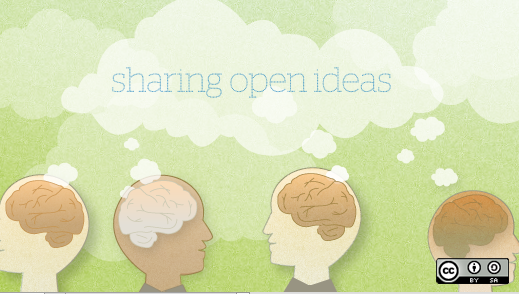I used to write code. I don't anymore. There are lots of reasons for this, including the fact that I wasn't very good at it. To clarify, I was, I think, good at writing code,1 but I wasn't very good at writing code.2 It turns out that I'm quite good at a variety of other things, so my career3 moved in a different direction—or, in fact, a variety of different directions. After a number of roles ranging from "Electronic Information Controller" to "Product and Programme4 Manager" through software engineering and pre-sales, I finally settled into something called "architecture." Which means that I mainly draw boxes and lines on whiteboards and expect people who are very good at writing code to make the boxes "real."
Through all this time I've been involved with, using, and quietly advocating for open source. I absolutely haven't been much of a voice in the community—or communities—but it's been something that I've long believed in and held dear.
But I've always worried that I'm not a real open sourcer. That I don't have any right to make a noise, stand up, become a real evangelist for open source. And that's because I've never written much code for any open source project. I've never been much of a contributor, and I've certainly never been a maintainer on any projects.
Open source is, of course, driven by code—by the source.5 And if you don't contribute to the source, it's easy to feel like a second-class citizen. And there's been some truth to that: many open source projects are guided through their lifecycle by a small band of people who write and maintain the code. In some of those projects, if you don't write that code, your voice isn't going to get much visibility.6
Overall, however, I think that's changing, and that's generally a good thing. Many projects now realise the value—the great value—in community organisers, testers, docs people, marketing folks, UX designers, graphic artists, sound artists, translators, and all the rest (even architects) who don't actively contribute source code to the project. Because without these types of people, the project, however brilliant, is never going to take off. I started to come up with exceptions to this rule, and then realised that—although I might be able to take away some elements of the list from some projects—none can become really successful with just coders.
That means that we can all be involved, even if just as users who file bugs—that's testing, folks—or pointing out that the wording in a title screen feels a bit odd—that's documentation or maybe translation.8
The other thing that's changed over the past few years, and which Opensource.com is enthusiastically promoting, is that open source isn't just about code anymore. It's about hardware specs, beer recipes, data, decision-making, even how organisations consider themselves and their culture. So what it all comes to down to is that I'm (finally) feeling more comfortable about thinking of myself as a "real" open sourcer. That's one of the reasons I started writing for Opensource.com, in fact. I realised that maybe I do—and, here's the point, all of us do—have skills and experience and talent to bring to open source.
I encourage you—whatever your skills, whatever your interests,10 whatever your experience—to poke your head above the parapet and see what you can do in the open community. Yes, write code if you can and want to, but test, document, design, or just use and evangelise: It's all for the good of the movement, and it all adds to the commonwealth of knowledge and expertise that we share and grow and celebrate.
1. Some of my previous colleagues might disagree with this.
2. But I doubt any of them will disagree with this.
3. A lesser-planned one it's difficult to conceive, given that my degree is in English Literature and Theology.
4. Yes, this is how you're supposed to spell this word (see 8)—unless you're talking about something that you run on a computer; that word is missing the final two letters.
6. Unless it's an audio editing project.7
7. Work with me, work with me.
8. We need more projects with en-gb translations, IMNSHO.9
9. In My Not So Humble Opinion.
10. Unless you're interested in keeping things closed and proprietary.




11 Comments